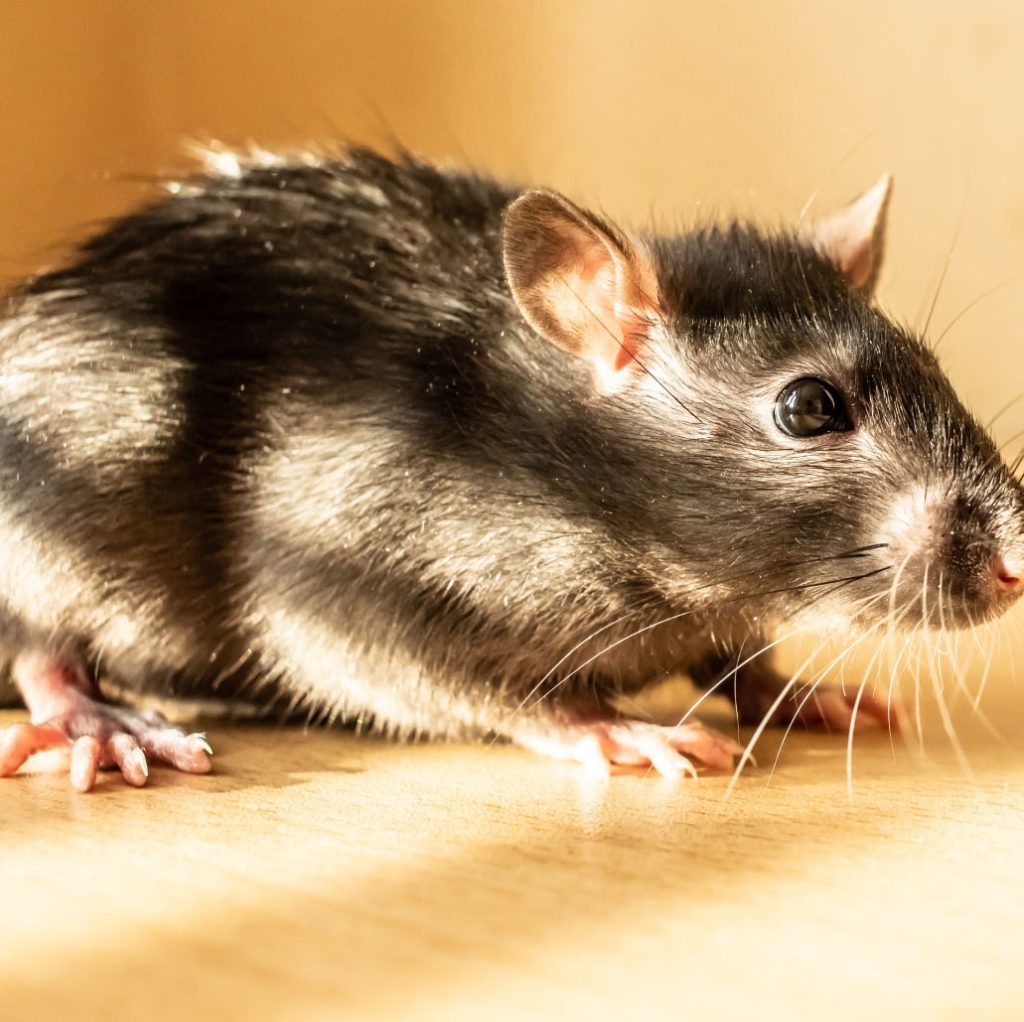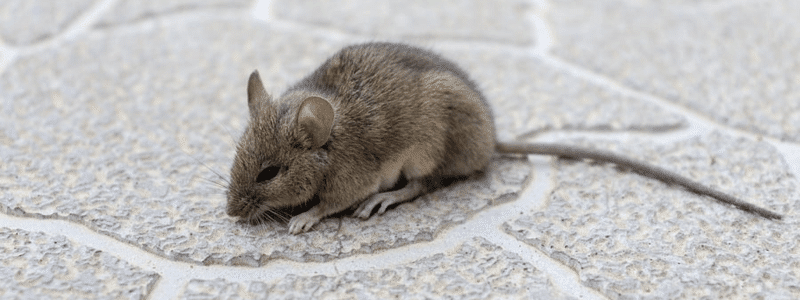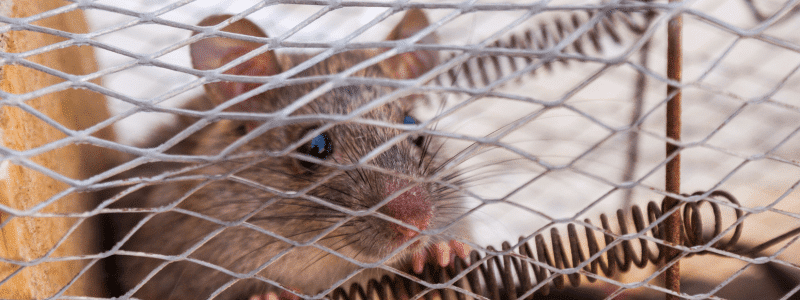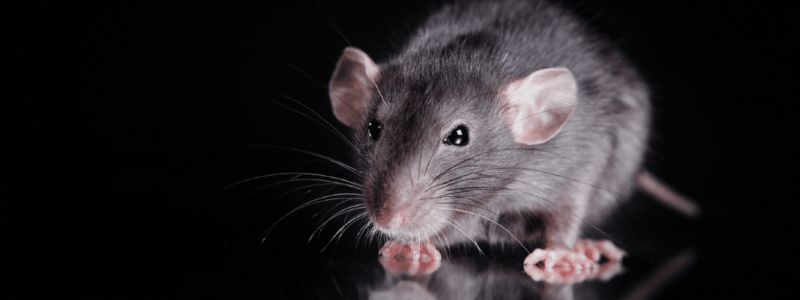
Rodent Control in Phoenix, Arizona
Are Rodents a Cause for Concern in Your Home?
Arizona is home to many different types of rodents, and sometimes they end up in the homes of unsuspecting Arizonians. Most rodents – such as rats and mice – are nocturnal; therefore, they’re active at night when most everyone is asleep. Because of this, rodent infestations often go unseen…until things get really bad.

Common Rodents in AZ
Roof Rats
Since the early 2000s, roof rats have carved a place among Arizona rodents, prospering among citrus trees and around irrigation canals.
Roof rats are nocturnal and have fairly black fur and long, hairless, scaly tails. They’re usually about 7-8 inches in length.
Roots rats enjoy climbing trees, vines, rafters, and even your wires and will use these as ways to enter your home.
Norway Rats
Also, nocturnal creatures, Norway rats do a lot of climbing and jumping – even as high as 8 feet horizontally!
As one of the larger rats, they run as long as 8-10 inches with shorter, hairless, scaly tails (shorter than the length of their head and body) and are brownish-gray.
Woodrats/Pack Rats
Woodrats are typically found in central Arizona, including the whitethroat woodrat, Mexican woodrat, and Stephen’s woodrat. They’re larger among Arizona rats, running 6-8 inches long with furry tails, white underbellies, and feet.
You’ll likely run into these nocturnal rats in neighborhoods with juniper, chaparral, and desert scrub. Keep an eye out for their nests as they like to burrow in attics, underneath homes, and even inside vehicles.
House Mice
House mice are the little guys among Arizona rats.
They’re typically dusty gray and nocturnal, like roof rats, woodrats, and Norway rats.
They burrow in dark, insulated areas throughout your home, especially in areas with fabric, cotton, packing material, or insulation.
The main danger with these guys is the disease they can bring by their frequent daily droppings, potentially transmitting salmonella, tapeworms, rat-bite fever, infectious jaundice, plague, Hantavirus, and polio.
Are Rodents Harmful?
All rodents can potentially spread deadly diseases, such as salmonella, rat-bite fever, tapeworms, and more. They contaminate your home through their urine, feces, and saliva and indirectly from fleas and ticks that feed on rodents and then bite humans. You must immediately resolve an infestation to protect yourself and others (especially children) from catching any diseases.
In addition to contaminating foodstuffs in your home, rodents will gnaw on just about anything that can be used to help build their nests, damaging furniture, wiring, ductwork, clothing, artwork, and so much more in the process. Bottom line: They’re worse than the worst roommate you’ve ever had.
What is Attracting Rodents to Your Home?
- Rodents are always on the lookout for food, and they’ll pretty much eat anything you leave out.
- Unsecured trash containers are breeding grounds for rodents. It gives them a place to live and food to eat.
- Just like many other pests, rodents are attracted to water.
- Leaving debris in your yard provides a safe hiding place for rodents, bringing them a step closer to the inside of your home.
Ways to Prevent a Rodent Infestation
- Remove any rodents currently burrowing in your home.
- Trim trees and eliminate ways rodents may access your roof.
- Clear away any debris and clutter throughout your yards.
- Seal off any entry points into your home.
- Build a 2-foot-wide wall/barrier.
- Get a cat.
- Repair any leaky pipes or faucets.
- Make sure your trash containers are tightly sealed.
- Avoid leaving food out, including pet food.
- Schedule routine extermination visits with your local integrated pest management professional.

Frequently Asked Questions
What smell do rats hate the most?
Most types of essential oils will deter rats, including peppermint, eucalyptus, and cinnamon. Peppermint in particular is viewed as the most hated scent to rats. Rats are also deterred by the smell of vinegar which can be sprayed in the form of a water-mixed solution near door frames, on counters, and other crevices or entry points where rats may enter.
What is the most effective rodent control?
Rodents will seek out environments that provide them with the main necessities – food, water, and shelter. Keeping your home or commercial building free of exposed food and crumbs, standing water, and built-up moisture can reduce the attractiveness to rodents.
How do I get rid of rodents permanently?
Integrated pest management is the most effective form of preventative and extermination treatment for pests.
The team of skilled pest control exterminators at Insectek can handle all your rodent problems by implementing a solution to halt both existing and potential infestations.

Pest Control and Removal Services
Our team works to protect Arizonan homes and businesses from daily nuisances to the most destructive pests, including:
Related Articles
Instant Pest Removal Now!
Receive an instant pest removal and pest control quote now!
















